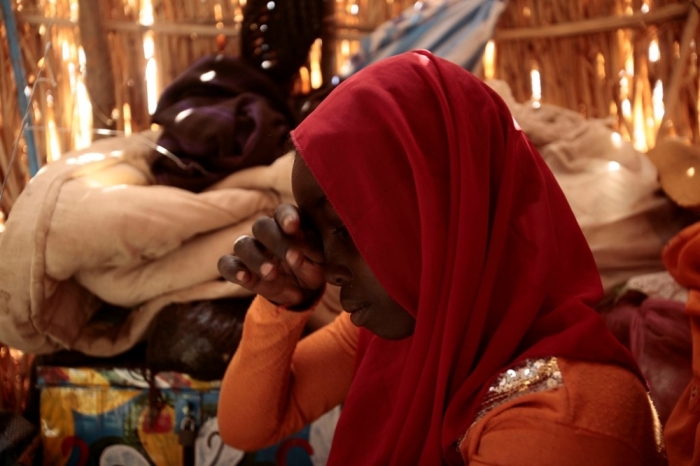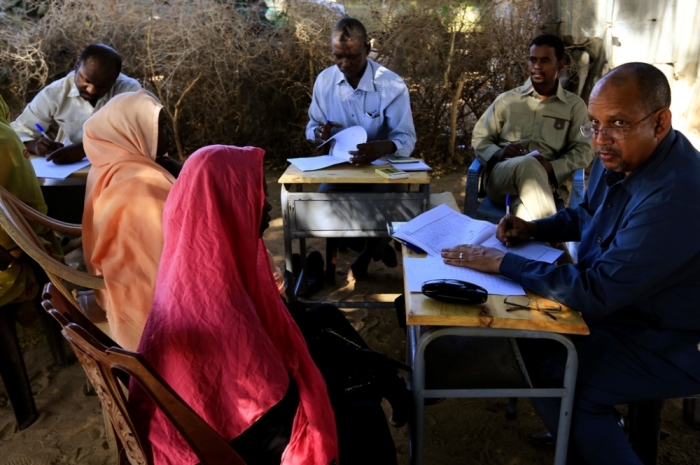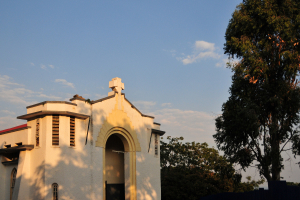Sudanese Army Troops Raped Over 221 Girls, Women in 'House-to-House' 3-Day Onslaught in Darfur, Says Leading Human Rights Group

Sudanese government forces systematically raped and beat at least 221 women and girls in a series of organized door-to-door attacks in Darfur last year, a leading human rights watchdog group announced on Wednesday.
In releasing a 48-page report, Human Rights Watch detailed how Sudanese army troops went from house to house in the North Darfur town of Tabit last October and raped over 221 civilian girls and women in just a 36-hour timespan.
"The deliberate attack on Tabit and the mass rape of the town's women and girls is a new low in the catalog of atrocities in Darfur," Human Rights Watch Africa Director Daniel Bekele told reporters.
The report documents 27 first-hand accounts of rape and also includes "credible information" about another 194 incidents of rape. HRW has said it interviewed over 130 people in compiling its report.
"The attacks included the mass rape of women and girls and the arbitrary detention, beating and ill-treatment of scores of people," The report stated. "The government of Sudan has denied that any crimes occurred and has prevented the African Union-United Nations Hybrid Operation in Darfur from carrying out a credible investigation of the incident."

The report details how army forces conducted three different "military operations" in the town over the 36-hour period. The first attack started on the evening of Oct. 30 while the second began the next morning. The third attack began later that evening and didn't subside until early morning on Nov. 1, 2014.
"Witnesses told Human Rights Watch that during each of these attacks, government soldiers went house-to-house in Tabit, searching houses, looting property, severely beating residents, and raping women and girls," The report explains. "On the two nights, soldiers forced many of the men to outdoor locations on the outskirts of the town, leaving the women and children especially vulnerable. The soldiers detained the men en masse, and threatened and physically abused them throughout the night."
A survivor of the attack named Khatera, a mother of three in her 40s, described just how systematic the rapings really were.
"They did it one by one. One helped beat and the other raped. Then they would go to the next girl," Khatera said.
A survivor by the name of Nadia told HRW that her house became bombarded with soldiers who threw the family's men out of the house and proceeded to rape the family's women inside.
"Eighteen soldiers came into our house. Three took men out. They beat the men with the back of their guns. Then they dragged the men out of the house," Nadia explained. "Then the 15 [remaining soldiers] raped us, all four of us. They beat us and they did whatever they wanted."
Although the motive behind the mass rape attack remains unclear, one soldier who defected told HRW that the troops were ordered to look for and punish rebel soldiers in the town because the Sudanese government had received information about a possible rebel attack against its army base just outside of the town. Residents told HRW that army troops who entered their homes told them that they were looking for a Sudanese army soldier who had been abducted and that they were also looking to punish his captor.
The report added that two soldiers who were involved in the attacks claimed that their superior commanders ordered them to "rape women" because they were considered "rebel supporters."
A victim by the name of Umm-Jumma described her attack: "When they saw that I wanted to fight they threatened me with their gun. Then they raped me. There were four of them. Two had civilian clothes. [They raped me] in front of my mother. She was screaming."
The report added that top government officials and military commanders did everything thet could to keep the residents of Tabit quiet and prevent the news of the rapings from getting out. When the Sudanese government-appointed special prosecutor visited the town on Nov. 20, according to the HRW report, residents were too afraid to speak out against the atrocities and the prosecutor ruled that no crime had been committed.
"They have threatened, intimidated, beaten, detained, and tortured residents of Tabit to prevent them from speaking out about what took place," the report explains. "Most of the rape victims interviewed by Human Rights Watch said they were unable or unwilling to be treated at Tabit's limited medical facilities because they feared arrest and further physical abuse by government officials."
Bekele, HRW's Africa director, has criticized the Sudanese government for refusing to let international community investigate the incident.
"The Sudanese government should stop the denials and immediately give peacekeepers and international investigators access to Tabit," he said. "Sudan has done everything possible to cover up the horrific crimes committed by its soldiers in Tabit but the survivors have fearlessly chose to speak out. The UN Security Council and the AU should demand that Sudan stop these attacks, urgently act to protect Tabit residents and conduct a credible investigation."




























